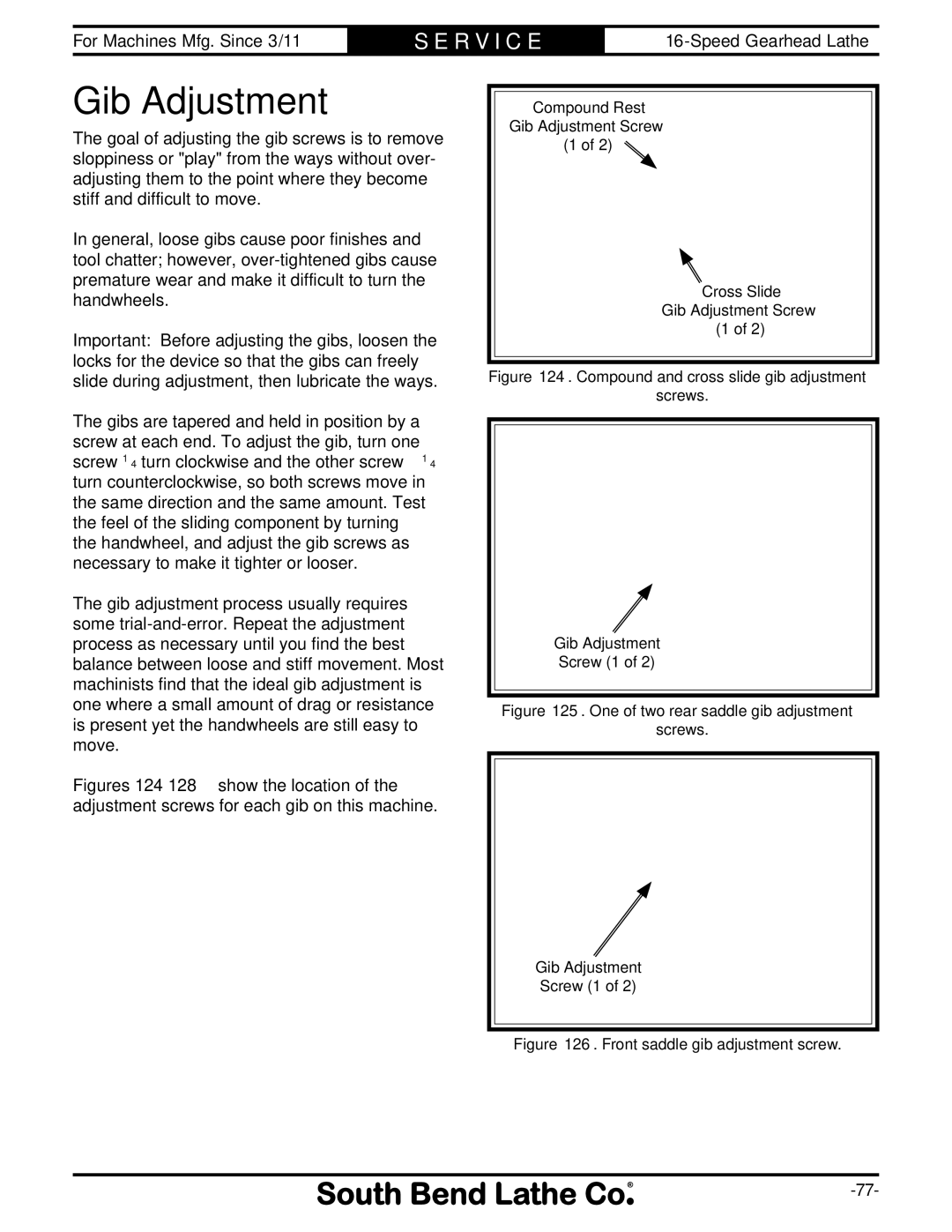
For Machines Mfg. Since 3/11 | S E R V I C E |
Gib Adjustment
The goal of adjusting the gib screws is to remove sloppiness or "play" from the ways without over- adjusting them to the point where they become stiff and difficult to move.
In general, loose gibs cause poor finishes and tool chatter; however,
Important: Before adjusting the gibs, loosen the locks for the device so that the gibs can freely slide during adjustment, then lubricate the ways.
The gibs are tapered and held in position by a screw at each end. To adjust the gib, turn one screw 1⁄4 turn clockwise and the other screw 1⁄4 turn counterclockwise, so both screws move in the same direction and the same amount. Test the feel of the sliding component by turning the handwheel, and adjust the gib screws as necessary to make it tighter or looser.
The gib adjustment process usually requires some
Figures 124–128 show the location of the adjustment screws for each gib on this machine.
Compound Rest
Gib Adjustment Screw
(1 of 2)
Cross Slide
Gib Adjustment Screw
(1 of 2)
